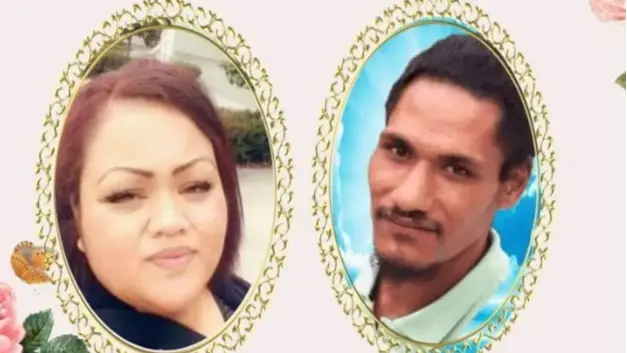Addressing the Intimate Partner Violence Crisis in Pacific Communities: Insights from Genevieve Sang-Yum

Toakase Finau was murdered by her estranged partner Viliami Latu in 2021. He then took his own life. Photo/Facebook
The tragic death of Toakase Finau in 2021 by her estranged husband despite legal protections, has reignited urgent conversations about systemic gaps in addressing intimate partner violence (IPV). Genevieve Sang-Yum, Unitec Social Work lecturer and family violence advocate, emphasizes the need for culturally informed solutions and systemic reform to protect vulnerable communities.
A Systemic Failure with Fatal Consequences
Toakase Finau’s story is a harrowing example of how existing safety measures can fail. Her husband, Viliami Latu, was released on bail despite police objections and violated a protection order repeatedly. Finau’s plea “I cannot stop him” underscores the helplessness many victims feel, even with legal interventions. Sang-Yum describes this case as “heartbreaking,” highlighting flaws in a justice system that granted bail to a perpetrator with a documented history of abuse.
“When someone has clear warning signs, bail should not be granted without strict conditions or at all,” says Sang-Yum. The coroner’s report labeled this tragedy a reflection of New Zealand’s “epidemic of intimate partner violence,” stressing the need for urgent action.
Pacific Women Disproportionately Affected
The statistics paint a grim reality:
| Statistic | Data |
|---|---|
| Pacific women in NZ experiencing IPV | 2 in 5 (40%) |
| Pacific child abuse fatalities | 5x higher than other ethnicities |
| Pacific women globally facing IPV | 60% (intimate partner/family violence) |
| Fiji: Women believing marital obligation | 33% (non-consensual sex) |
| Tonga: Children witnessing abuse | Over 50% of cases |
These numbers reveal a crisis compounded by cultural, spiritual, and systemic barriers. Sang-Yum notes that many Pacific victims stay in abusive relationships due to fears of shaming their families or religious beliefs that discourage separation. “Faith can be a source of strength, but it can also trap victims in cycles of abuse,” she explains.
Culturally Led Solutions and Systemic Change
Sang-Yum advocates for community-driven approaches aligned with Pacific values. “Pacific families value solutions involving churches, elders, and cultural leaders,” she says. However, service providers often lack resources to integrate these elements.
Te Puna Aonui, a cross-government agency, is implementing Te Aorerekura, a 25-year strategy to eliminate family and sexual violence. CEO Emma Powell acknowledges systemic failures in Finau’s case and stresses the need for coordinated action: “We must turn these tragedies into tangible change.” Key focuses include:
Prevention: Addressing root causes like intergenerational trauma.
Community Partnerships: Expanding culturally safe services, including Pacific-led refuges.
Immediate Intervention: Ensuring timely, tailored support for high-risk families.
Genevieve’s Message: Strength in Seeking Help
Sang-Yum urges victims to seek help without shame: “It’s an act of strength and love for your family.” She also highlights the role of bystanders: “Be the person who listens, stands up, and offers support.”
How to Help or Seek Support
If you or someone you know is experiencing abuse:
Call 111 in emergencies.
Contact Women’s Refuge (0800 733 843) or local Pacific service providers.
Learn more about Te Aorerekura and community resources here.





